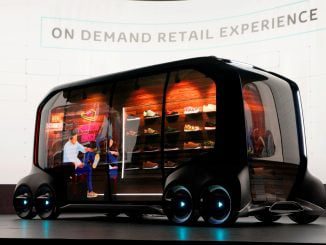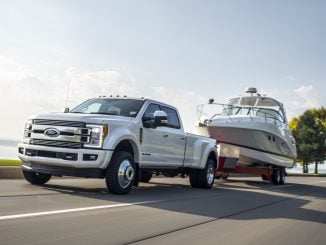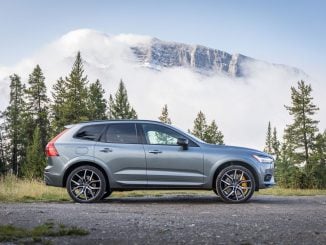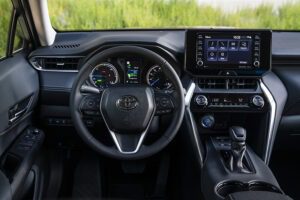 SAN DIEGO — Early this year, I reviewed the Toyota Avalon. That’s the brand’s flagship sedan, with a Lexus-lite design, interior, and drivetrain. It’s the car for people who can afford a Lexus, but know they don’t need to shell out extra money to get the features they want.
SAN DIEGO — Early this year, I reviewed the Toyota Avalon. That’s the brand’s flagship sedan, with a Lexus-lite design, interior, and drivetrain. It’s the car for people who can afford a Lexus, but know they don’t need to shell out extra money to get the features they want.
It’s a very good car. The problem, of course, is that the Toyota Avalon is a car and people don’t really want to buy cars these days — not when they can buy crossovers instead. And though Toyota offers a wide range of crossovers, from the thrifty C-HR all the way up to the three-row Highlander and the enormous Land Cruiser, there hasn’t been anything that really fills that Lexus Lite niche for potential buyers of, say, the fantastic Lexus RX.
But now there’s the Toyota Venza, which recycles an old name into a new SUV that may hit the perfect two-row crossover sweet spot. It starts at $33,645 for the LE model and scales up to $40,975 for the Limited (shouldn’t that be called the “Unlimited”?). My test unit was $38,050, which puts it right at the average new car price in the US.
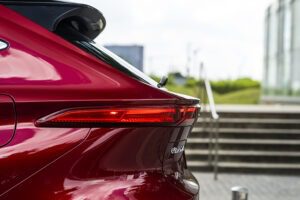 Perhaps the most interesting bit about the Venza is its standard hybrid powertrain. Twenty years ago, it was a big deal that the Prius was a hybrid. Now the fact that a mid-sized crossover is a hybrid by default is almost an afterthought. It’s a nice hybrid, though, with a 2.5-liter four-cylinder engine with three electric motors helping push things along.
Perhaps the most interesting bit about the Venza is its standard hybrid powertrain. Twenty years ago, it was a big deal that the Prius was a hybrid. Now the fact that a mid-sized crossover is a hybrid by default is almost an afterthought. It’s a nice hybrid, though, with a 2.5-liter four-cylinder engine with three electric motors helping push things along.
Toyota says it’s good enough for 40/37/39 miles per gallon city/highway/combined, which is rather excellent. And, like all Toyota’s hybrid cars, the Venza’s drivetrain stays entirely out of the way. You don’t even notice that it’s a hybrid because the engine is incredible smooth when turning off and on as needed, and it basically drives like an entirely normal car. Press “On” button, shift to drive, drive. But not to the gas station as often as you’d initially expect.
The Venza also includes a 7-inch standard infotainment display that supports Apple CarPlay, Android Auto and Amazon Alexa. Though my XLE version included a much larger 12.3-inch touchscreen and an upgraded JBL stereo. There are standard heated front seats, and Toyota’s Safety Sense 2.0 system that has automatic emergency braking with pedestrian detection, lane departure alert and steering assist, automatic high beams, radar cruise control and some other niceties.
The center stack has large, easy to use buttons to change the temperature or fan speed (though you should just hit Auto and leave it alone), and the Venza doesn’t have the litany of useless buttons around the main infotainment screen that older Lexus and Toyota vehicles do.
The steering wheel is typical Toyota, with a nice feel and easy-to-use controls for the cruise control, stereo, and the dash cluster. The interior is laid out well, too, with a standard PRND shift knob and two large cupholders just behind it. There’s also room for your phone in a cubby just in front of the shift knob, which is a welcome relief. A large center armrest slides back slightly to give access to the heated and cooled seat buttons if you need them, which is a clever use of space.
Like the Lexus RX, the Venza is quite good looking as well, with angled tailgate glass and rather nice nips and tucks especially around the rear wheels. From afar, it even looks like the RX, which is a compliment. The LED tail lights are attractive, as are the LED daytime running lights, and the car looks more expensive than it is.
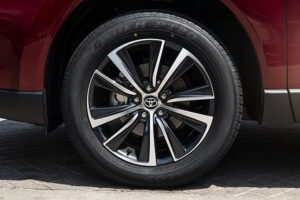 The only hint at its relative inexpensivity is the blue Toyota badge (hybrid Toyotas have blue emblems), but you know there’s something special here. I really liked the Toyota Avalon, jokes about it being a car for old people aside. That car is a solid value and it really makes one think about whether the Lexus ES is even necessary (though the Lexus is quieter inside, has a better engine, and has better materials inside).
The only hint at its relative inexpensivity is the blue Toyota badge (hybrid Toyotas have blue emblems), but you know there’s something special here. I really liked the Toyota Avalon, jokes about it being a car for old people aside. That car is a solid value and it really makes one think about whether the Lexus ES is even necessary (though the Lexus is quieter inside, has a better engine, and has better materials inside).
The Toyota Venza takes that Avalon formula and rolls it out for the Lexus RX crowd. Yes, the Venza is not quite as nice inside and it doesn’t have the Lexus brand cachet, and perhaps it’s not as quiet. But it’s far cheaper than the RX — I drove one of those earlier this year that topped $60,000 — and it’s almost nearly as good. And, as a result, I suspect Toyota is going to sell a ton of these. As they should.

